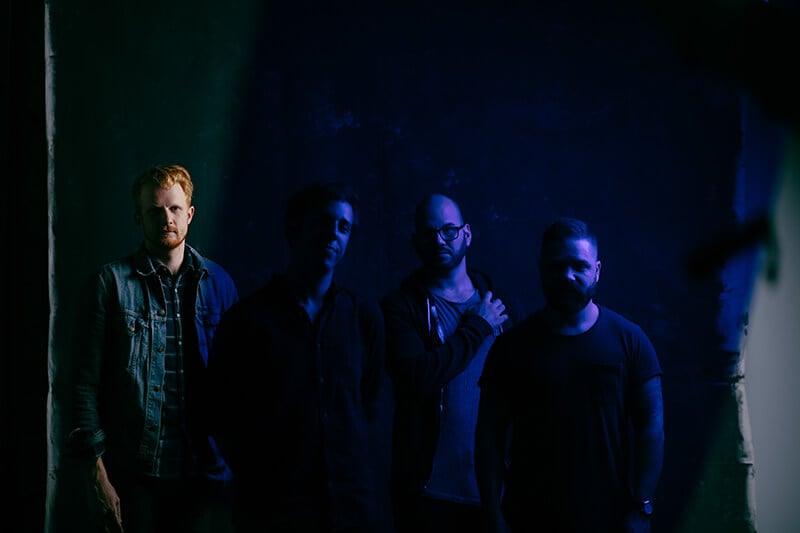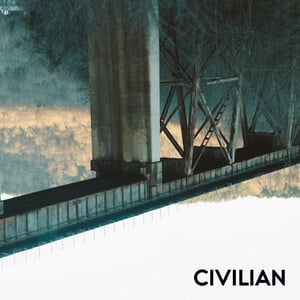In our latest interview, Ryan Alexander, songwriter for Civilian, discusses his newest album, You Wouldn’t Believe What Privilege Costs, delving into how his introspections meld with music, creating a superb indie rock sound.
https://www.youtube.com/watch?v=LwhU-OHNeo8
You seem to be on a mission to educate and enlighten people through your music. Where does that desire to communicate stem from?
Brilliant thinkers, scientists and novelists have written trillions of enlightened words on millions of pages. These writers wouldn’t waste their time putting these things on the page if they didn’t want to help make sense of their findings. But unless a reader is really patient, they will quickly find themselves among the majority of people who think these types of ideas are out of reach.
Literature goes to bat for lyric and melody all the time. That’s what poetry is. I feel like music has an obligation to return the favor, to reinforce ideas from texts so that they aren’t lost due to modern America’s fear of anything over 140 characters long.
Say something smart and they’ll think you’re intelligent. Make it rhyme and they’ll think you’re a genius. Truth is, most of the content I [write] comes directly from what I read.

Ryan Alexander of Civilian
We can’t help but be products of our environment. You have a storytelling vibe and creative lyrical structure. How have your experiences and interests impacted the type of language you use?
I grew up stuttering. It wasn’t until after I started high school that my stuttering started to slow down. Out of necessity, I learned to listen because I was mortified of looking stupid to my classmates. Although I wasn’t someone to speak up, I always found ways of expressing my ideas. I always loved writing assignments in school and would write way more than was ever required.
I’ve always loved listening to educated people debate a single subject – especially if the argument is one that can’t be “won” in any literal sense (i.e. religion or politics). But, I don’t know if I’ve ever heard anyone effectively protest a deep song… especially a nonfiction song such as Dylan’s ‘The Lonesome Death of Hattie Carroll.’ Artists have the chance to critique and present their case and very few non-artists give much time to countering the argument the song lays out. They are free to let it move them without having to parse every line. Identity politics seems to fade when it comes to music.
When you are working on a song, do you consider what kind of words will pair best with certain instrumental elements? Do you think that word choice and instrumentation rely on each other?
I wrote a song about a friend of mine who committed suicide and I start the song with “James Kent, son of a bitch. You were my best friend when you set your head down on the train tracks.” I’m not sure if that’s the way everyone in the world should start their loved one’s eulogy but it seemed to be the only way to start the story – to express how pissed off I was at him for killing himself. To soften the language of a story only softens the story and I think that’s an insult to the audience. They can handle it. If you don’t think they can, maybe you’re trying too hard to impress them.

Ryan Alexander of Civilian
I’ve always loved juxtaposing the melodies and music of a song against the lyrics. People dancing in the front by the stage wonder why the wallflowers aren’t moving their feet and the wallflowers – listening to the words – are wondering how in the world the people up front are clapping and dancing to something so sad. On the new record I sing the phrase “I am much happier now” as unenthused as I’ve ever sung anything. I love the paradox.
Your conversational songwriting style elevates the songs. Do you think that creating music about such sensitive topics like love, politics and general skepticism of life opens the door for a conversation on a bigger stage?
Songs of the conversational sort were my introduction to most of what I have grown to care about. For some minds, music may be the only way for these things to click. This may be why people feel entitled to music in the same way they feel entitled to the Internet; they don’t feel like they should have to pay for things that seem so necessary for growth. Conversational songs can help pinpoint something hidden in the listener. These types of songs are especially effective in live settings. I’ve watched David Bazan open up the floor for questions at every show he’s played for a decade. The result is especially unique given his songs because people are invited deeper into his life with every record.
All of the songs on the album are very structurally sound. What are your recording sessions like?
This album was self-produced, so I’m glad to hear that someone thinks it’s structurally sound. I’m a bridge-man myself. Most people are all about choruses, but not me. I can’t seem to write a chorus that I love, but I never have a shortage of ideas for bridges because they really save me from the boredom of songwriting. I often use a bridge to run as far away from the song as possible, as a way to kind of lose my place. Then I’ll try to find my way back before the song ends. Sometimes I can’t.
As far as the process of writing, I generally write most of the parts on my own and sequence the rough structures using Ableton Live and drum machines. I do this because I’m not comfortable creating with other people watching me; it’s easier when I’m alone. However, when we go into the studio, we track almost everything live with all four of us in the same room. We go back and do overdubs as needed. What you hear on the record is a glorified version of the real thing, but the real thing nonetheless.

The band Civilian
In addition to being in Civilian, you record other bands. How has the experience of recording other bands impacted your creative process?
I have learned every single thing I know about songwriting and producing from the people I work with. There isn’t a song that I write that isn’t influenced by watching these other artists work. Having done most of the recordings I’ve produced for (close to) free I’ve never grown to hate working with bands I love. These bands have helped me completely reform the way I approach the guitar and what a good song is.
Truthfully, most of the bands I’ve worked with don’t really need my help to make a great record. They only need my help to point out things about their writing that have been in their blind spot. And whatever happens next is just a magic trick that I can’t explain. I can be permanently affected by it, but I can never explain it.
Follow on Twitter @CIVILIAN_sounds
ORDER You Wouldn’t Believe What Privilege Costs, out now on Tooth & Nail Records:
iTunes: http://smarturl.it/Civilian
Amazon: http://amzn.to/2eBp65j
Spotify: http://sptfy.com/2c0f
Google Play: https://goo.gl/fDf7Dg
Apple Music: http://apple.co/2dvuUex
